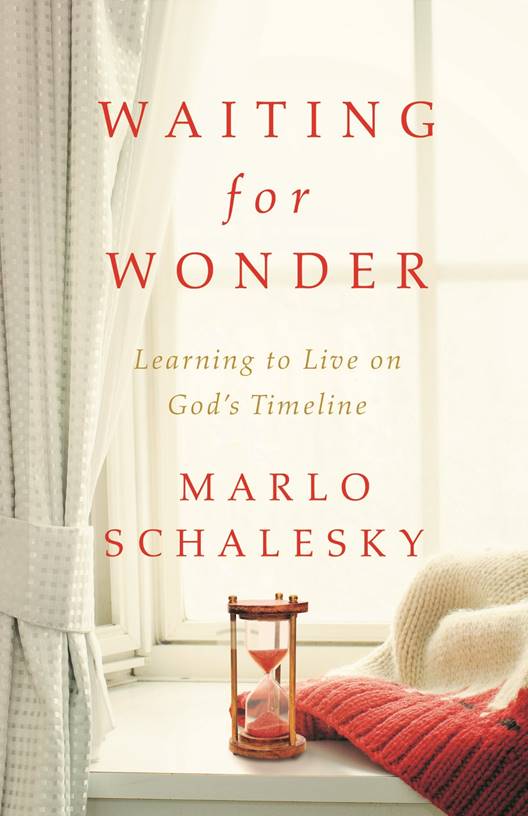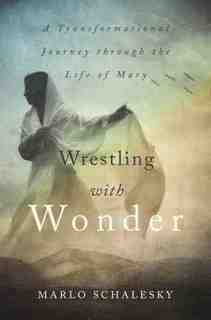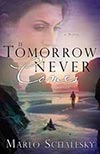This has been a week of worry and niggling fear for me. As a writer, it's all too easy to imagine the worst outcomes for every situation and how finding "something" in a medical test could mean the beginning of a hard, drama-filled journey. After all, in a novel, nothing is ever "nothing." That would be boring.
So this week, as I worry, and try not to worry, as I imagine, and try not to imagine, as I tell myself that while God is indeed the author of my life, his concern is not so much in keeping a reader entertained as it is accomplishing his perfect will, as I tell myself not to watch the phone for the call I think will come … as I try not to live in fear … here is an article that I'm finding helpful. I wrote it waaaaay back at the beginning of my writing career and find that it is still speaking to me today …
Packing a Load of Worry
"Cast all your anxiety on him because he cares for you."
1 Peter 5:7 NIV
"Ow! Ooooo! Ugh! Ack!," I cried as my thirty pound backpack settled with ponderous severity on my tired hips and back. I tightened the strap around my waist, feeling the nylon dig into my sides and shoulders, pressing unmercifully into the deep purple bruises that had formed during yesterday's hike. How much more wonderful it would be to be able to backpack without having to carry anything! If only it could be so! If only someone else would carry the burden and allow me to bound along through the forest unhindered. I sighed and looked down at my dusty feet, wondering if I would be able to move them at all with that heavy load on my back.
 But, move them I did, trudging forth along the trail as playful wisps of dust rose up to tantalize my nostrils and settle quickly on my face and hair. I sneezed and adjusted the pack as I made my way up the gentle, yet torturous, climb to my day's destination. Thud, thud, thud, went my feet along the path, echoing with the weight of my body plus the backpack.
But, move them I did, trudging forth along the trail as playful wisps of dust rose up to tantalize my nostrils and settle quickly on my face and hair. I sneezed and adjusted the pack as I made my way up the gentle, yet torturous, climb to my day's destination. Thud, thud, thud, went my feet along the path, echoing with the weight of my body plus the backpack.
After a few more hours, though, I no longer noticed the weight of the pack. My feet still plodded heavily in the dust, but I had gotten used to the additional burden. The thirty pounds weighing down my shoulders seemed almost natural. I practically forgot about it all together. I no longer remembered that it was the source of my weariness, even as my breath came in ragged gasps to my ears. I had come to accept the burden, hardly being able to imagine hiking without it. I ceased to wonder at the fact that simple walking had become such a chore, that even a flat path was a trial. I forgot that there was ever such a thing as traveling without a burden on my back.
Living our lives with worries and fears is a lot like hiking with a heavy backpack. When worry first comes upon us, we groan and cry out and wonder how we will ever get through the day with such a heavy burden weighing down upon us. But soon, as worry becomes natural, we accept it as normal. We put our worries on every morning like a great, heavy pack, and carry them through the day as if that was the only way we had ever known to live. Soon, we forget what it's like to walk through life without our fears strapped tightly to our backs. Then we wonder why we are so weary, so tired of the endless trudging from one day to the next!
Happily for us, there is Someone who has offered to carry the load for us, Someone whose hand is extended even now to take the burden of worry and fear and carry it Himself. Peter tells us to "Cast all your anxiety on Him because He cares for you" ( 1 Peter 5:7 NIV ). Jesus will carry the backpack for us, so that we can enjoy and relish the hike of life! All we have to do is hand over the burden to Him, allow Him to unstrap the worry from our backs and free us.
Just like backpacking, life is much more fun without thirty pounds of fear strapped on our backs. We can tread lighter, easier, freer, and, most importantly, travel much further toward our destination of Faith and Holiness!




















